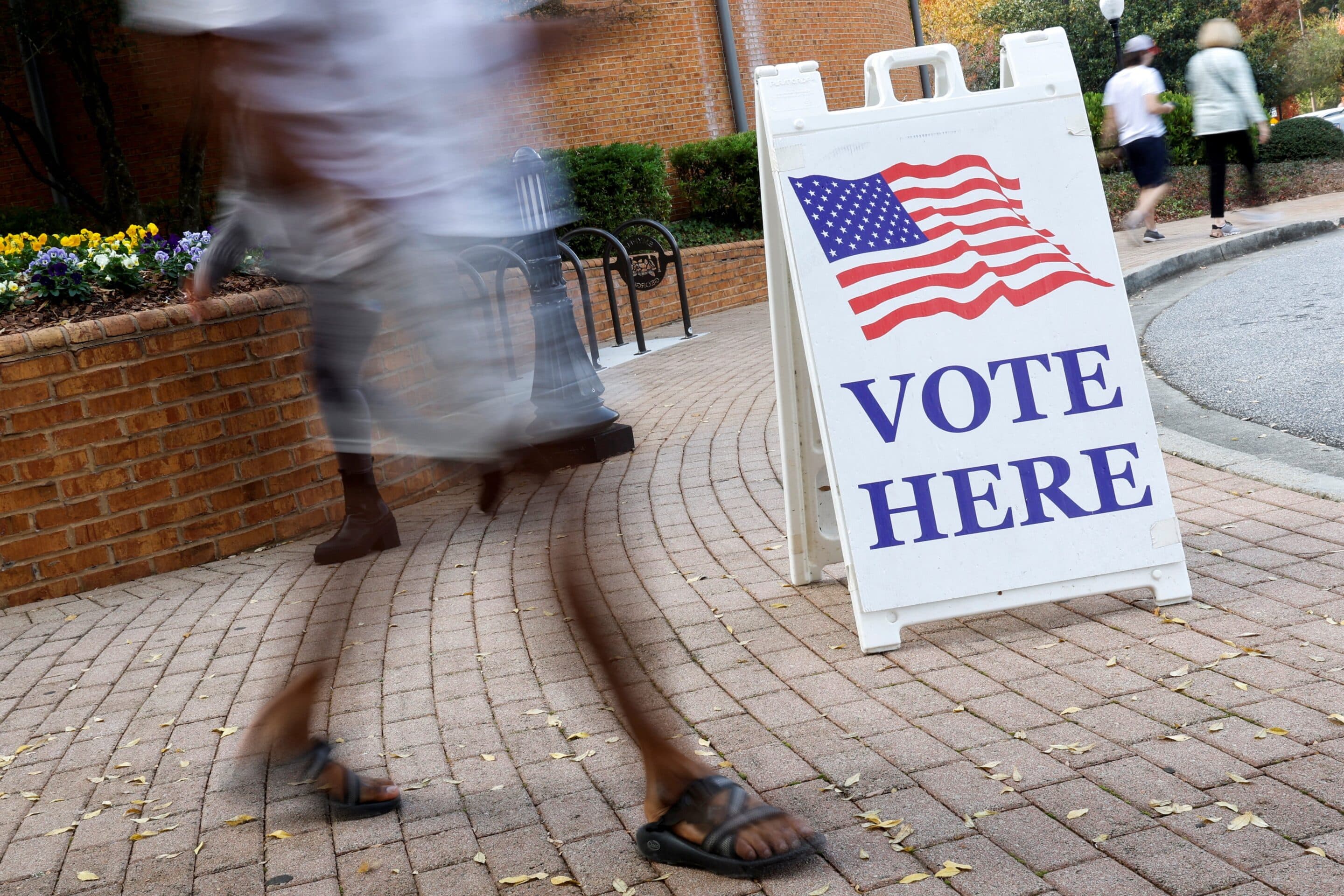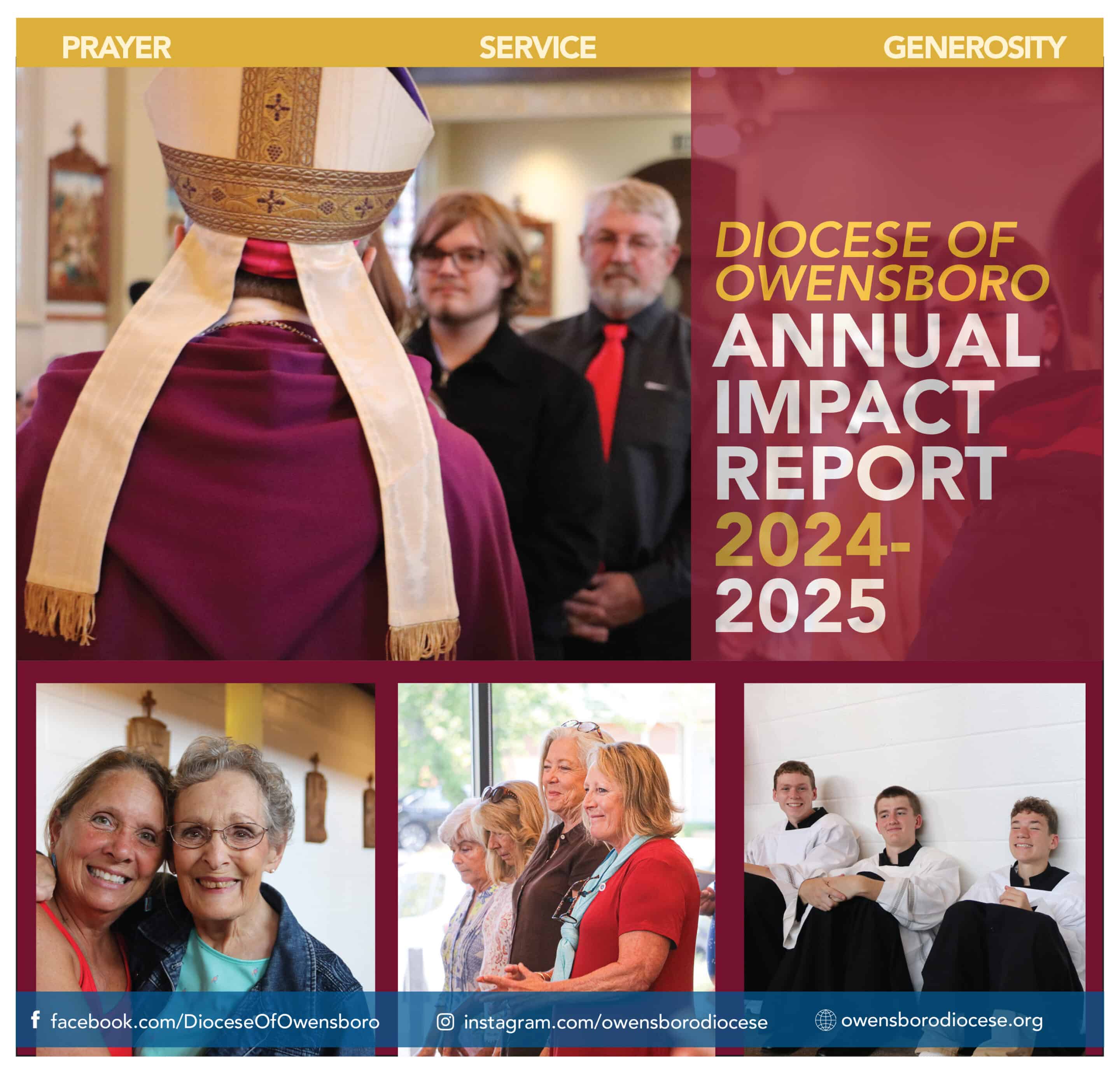
People at the Smyrna Community Center in in Smyrna, Ga., visit an early voting location Nov. 3, 2022, during midterm elections. CNS PHOTO/JONATHAN ERNST, REUTERS
Faithful citizenship: Catholics and elections
BY DCN. JAY W. VANHOOSIER, OFFICE OF FAITH FORMATION
In democratic societies, Catholics are called to engage in the political process as individuals guided by a comprehensive understanding of social justice rooted in their faith. The Catholic Church’s teachings emphasize the dignity of the human person, the common good, and the preferential option for the poor and vulnerable. These principles form the foundation for how Catholics should approach their role as voters, where they must weigh multiple issues and consider their broader implications on society.
Role of prayer in discernment
A vital part of this discernment process is prayer. Catholics are encouraged to begin their political engagement with prayer, seeking guidance from God to make decisions that reflect His will. Through prayer, they are invited to quiet their minds and open their hearts, asking for the wisdom to understand complex issues and the courage to act in accordance with their faith. This spiritual practice helps Catholics align their decisions with the Gospel’s call to justice, peace, and love for all people.
The social justice platform as a guide
Social justice in Catholic teaching is not merely a slogan but a call to action. It urges Catholics to promote policies that protect human life, ensure fair distribution of resources, and foster peace and reconciliation. When deciding how to vote, Catholics are encouraged to evaluate candidates and policies through the lens of social justice. This means considering not only prominent issues like abortion or religious freedom but also the impact of policies on the poor, the marginalized, and the environment.
Catholic social teaching and thoughtful discernment
Catholic social teaching does not advocate for blind allegiance to any political party or ideology. Instead, it calls for a thoughtful discernment process, guided by prayer, that seeks to align one’s vote with the principles of human dignity, solidarity, and the common good. This requires considering a wide range of issues, such as economic justice, healthcare, immigration, education, and environmental stewardship. These issues are interconnected and must be viewed in the context of their effects on the least among us.
Living with the decisions
After voting, Catholics are called to accept the outcomes, whether or not they align with their hopes. This acceptance is rooted in understanding the political process’s complexity and that no single election or candidate can fully embody the Church’s teachings. Catholics are encouraged to remain engaged beyond the election, advocating for policies that promote social justice and working within their communities to address the needs of the vulnerable.
Being gracious with differing opinions
In democratic societies, differences of opinion are inevitable, and Catholics are called to approach these differences with grace and humility. The Church teaches that all people are created in the image of God, including those with whom we disagree politically. Catholics are encouraged to engage in respectful dialogue, seeking to understand others’ perspectives and finding common ground where possible.
In the final analysis, Catholics are called to approach elections with a holistic understanding of social justice. By using the Church’s teachings as a guide, beginning with prayerful discernment, and engaging graciously with differing opinions, Catholics can contribute to building a more just and compassionate society, reflecting the true spirit of the Gospel.
Dcn. Jay W. VanHoosier is the Director of Faith Formation for the Diocese of Owensboro. For more information visit owensborodiocese.org/faith-formation, email [email protected] or call (270) 852-8324.
Originally printed in the October 2024 issue of The Western Kentucky Catholic.

